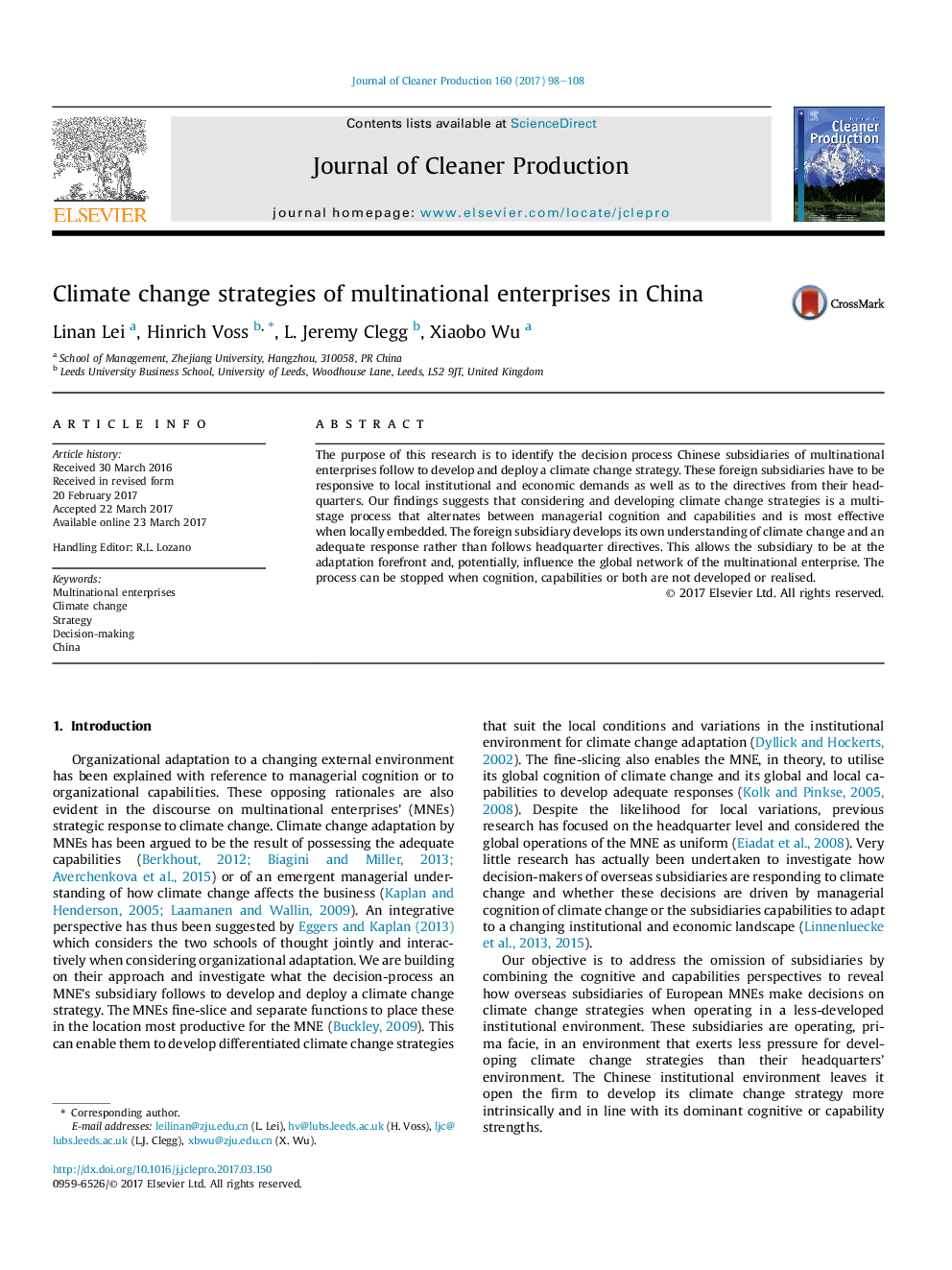| Article ID | Journal | Published Year | Pages | File Type |
|---|---|---|---|---|
| 5479534 | Journal of Cleaner Production | 2017 | 11 Pages |
Abstract
The purpose of this research is to identify the decision process Chinese subsidiaries of multinational enterprises follow to develop and deploy a climate change strategy. These foreign subsidiaries have to be responsive to local institutional and economic demands as well as to the directives from their headquarters. Our findings suggests that considering and developing climate change strategies is a multi-stage process that alternates between managerial cognition and capabilities and is most effective when locally embedded. The foreign subsidiary develops its own understanding of climate change and an adequate response rather than follows headquarter directives. This allows the subsidiary to be at the adaptation forefront and, potentially, influence the global network of the multinational enterprise. The process can be stopped when cognition, capabilities or both are not developed or realised.
Related Topics
Physical Sciences and Engineering
Energy
Renewable Energy, Sustainability and the Environment
Authors
Linan Lei, Hinrich Voss, L. Jeremy Clegg, Xiaobo Wu,
